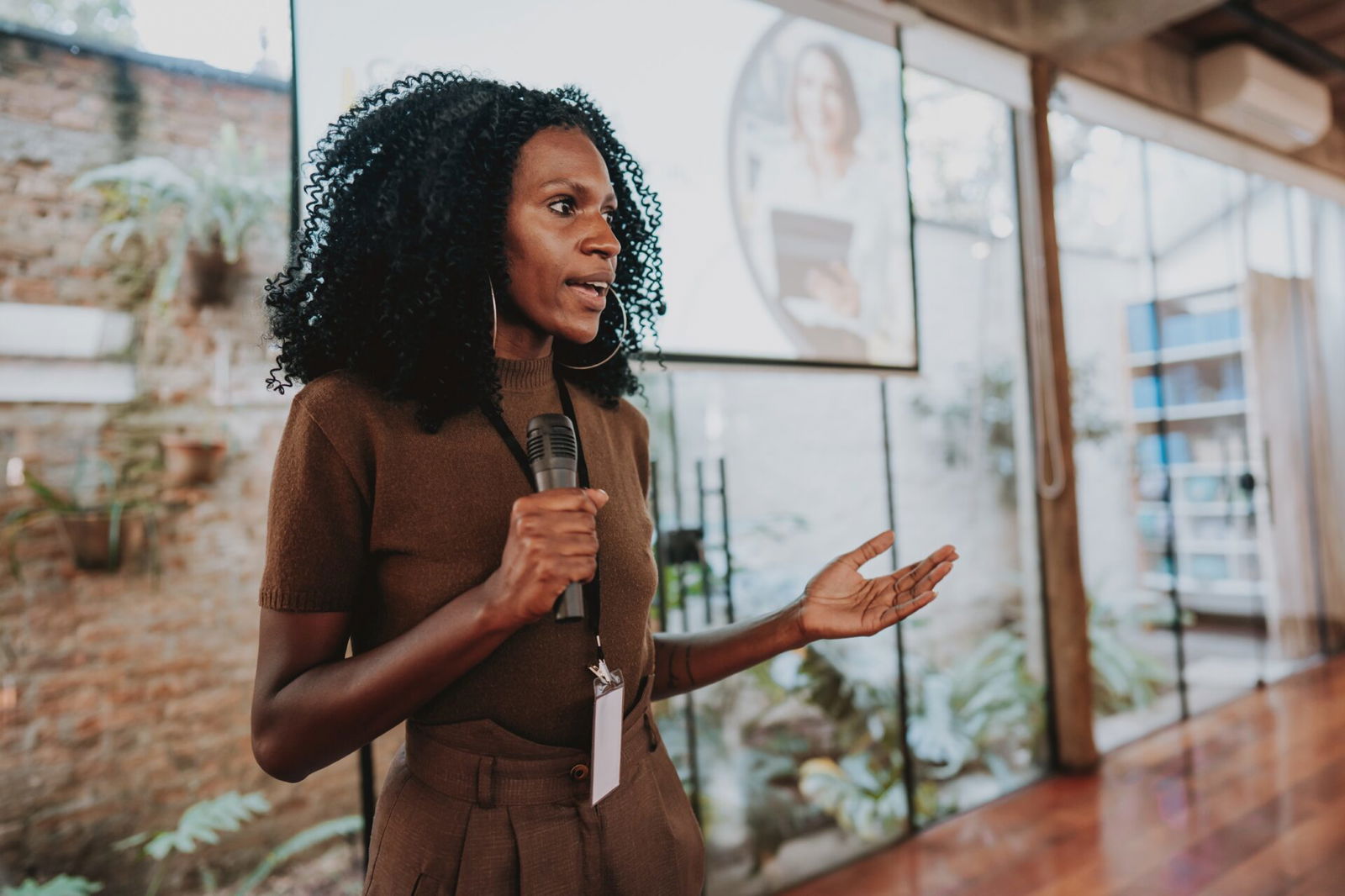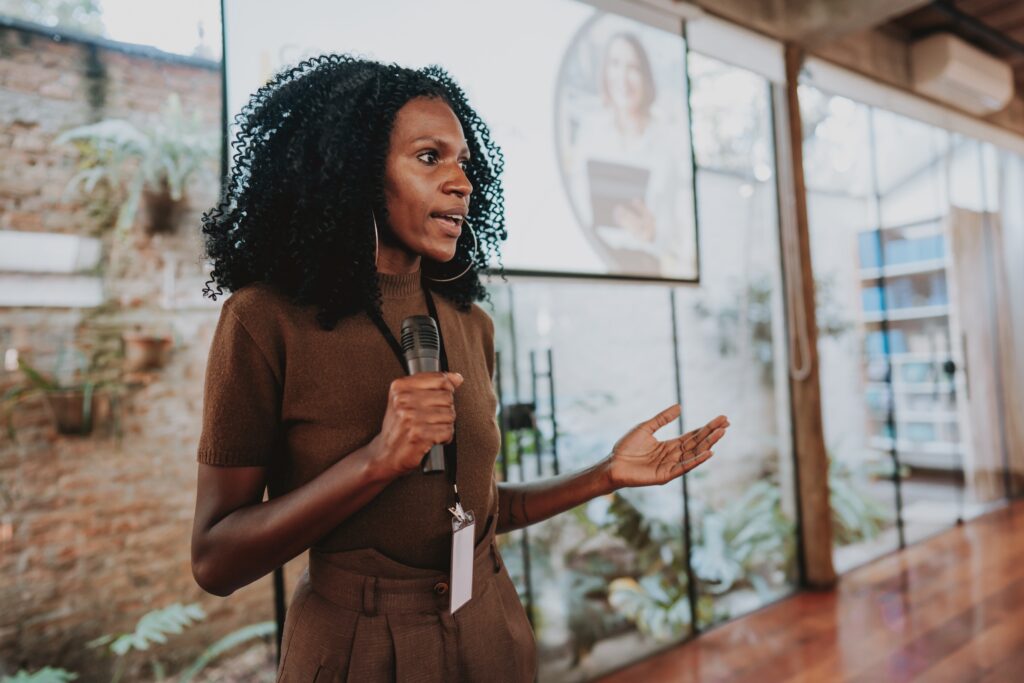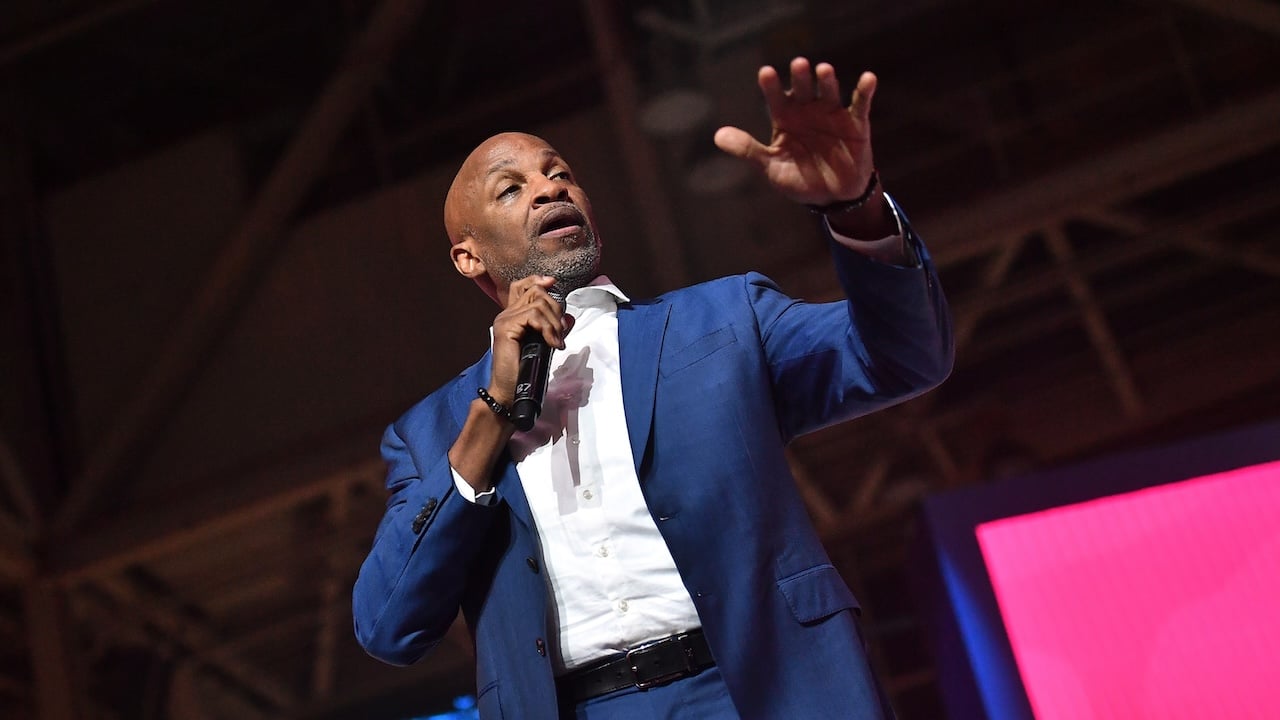
July 14, 2025
Thriving at work and protecting your well-being are not mutually exclusive
Written By Andrea Cennington
Black and Brown professionals are told to keep climbing, to get the degrees, the titles, and the seats at tables we weren’t always invited to. We do just that, rising, pushing through, succeeding, and excelling.
However, rarely does anyone discuss what success costs us emotionally. Behind the polished smiles and well-crafted LinkedIn profiles, many of us are carrying invisible wounds. This mental and emotional weight comes with navigating professional spaces that were largely built without us in mind or built for us not to succeed.
There is an emotional cost of climbing the career ladder, and it’s a conversation we’re worth having, especially during BIPOC Mental Health Month.
The Silent Stress No One Sees
For many professionals of color, the workplace often feels more like a battleground than a space for growth.
Every day, we navigate microaggressions, coded language, exclusion, and even erasure while trying to perform at the highest levels. The mental and emotional toll of simply existing in these environments is profound and undeniable.
This isn’t something we are imagining. Research shows that Black and Brown professionals experience chronic stress linked to racism, tokenism, and “minority stress,” a psychological burden that increases risk for anxiety, depression, cardiovascular disease, diabetes, and chronic fatigue.
We are often “the only one” in the room. That isolation, paired with the pressure to represent an entire race or community, creates a toxic cycle of hypervigilance, emotional exhaustion, and loneliness.
The Fatigue of Code Switching
One of the most common yet unspoken drains on our well-being is code switching, the constant shifting of how we speak, dress, express ourselves, and even manage our emotions, all to be “acceptable” or “safe” in majority spaces.
This performance isn’t harmless. Studies show that code switching takes a real cognitive and emotional toll, leaving us disconnected from our authentic selves and, over time, deeply fatigued.
I know this firsthand. I’ve sat in conference rooms where my voice was praised yet not heard. I’ve softened my words, muted my expressions, and forced a smile when, deep down, my spirit wanted to scream.
The Weight of Unseen Emotional Labor
For many of us, work extends far beyond the job description. We take on the roles of educator, diversity committee member, and the “safe person” colleagues turn to, all while managing our own unspoken challenges. This unpaid emotional labor carries significant weight. Over time, it often leads to burnout, self-doubt, and sometimes disconnection from our sense of purpose and joy.
Black women, in particular, often carry a compounded emotional burden. We’ve been conditioned to be strong and to push through, again at what cost? Prolonged exposure to stressors like discrimination, microaggressions, and systemic inequities has been linked to serious health risks, including heart disease, hypertension, chronic pain, anxiety, and depression. Research also shows that racism itself is a chronic health risk, activating the body’s stress response and fueling inflammation that ultimately impacts both mental and physical well-being. For many, success comes with silent suffering. Without systemic accountability, true healing, and culturally responsive care, too many are left to carry these burdens alone at a deep cost to their health and sense of self.
Choosing Mental Health as Success
The truth is, no achievement is worth sacrificing your mental health. Climbing the ladder doesn’t have to mean losing yourself in the process.
Here are the most important lessons I’ve learned, and now teach others as they navigate their own paths to success:
- Set boundaries early and often. Protect your time, your energy, and your peace.
- Find community. Connect with others who understand your journey; mentorship and peer support are lifelines.
- Speak up about mental health. Normalize therapy, rest, and emotional check-ins.
- Hold organizations accountable. Advocate for policies and cultures that support psychological safety, not just diversity quotas.
Climbing the ladder isn’t wrong. Wanting success isn’t wrong. But sacrificing your well-being in the name of ambition? That’s where the harm begins.
This BIPOC Mental Health Month, I invite you to pause and reflect: What does success mean if it leaves you feeling empty?
Thriving at work and protecting your well-being are not mutually exclusive. It’s time we made room for both.
RELATED CONTENT: Kyrie Irving Discusses Mental Health, Advises Others To Pursue Help, Check In On Others





